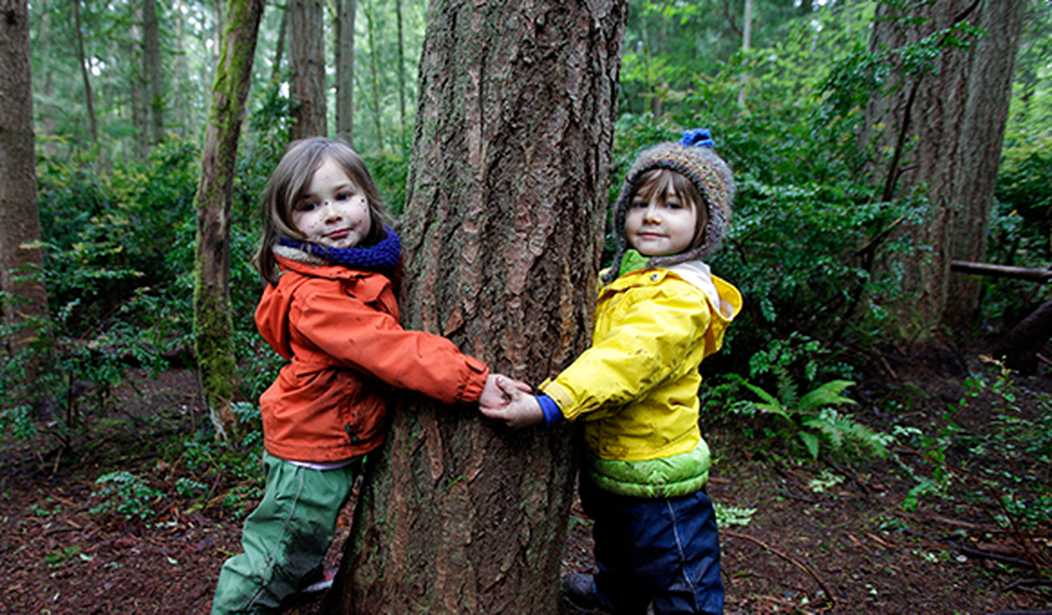As academia continues to become ever so more distant from teaching and more focused on political correctness, terms, and justice-related causes continual pop-up as the new hot trend.
One of the many new causes given prominent recent attention is the study of "ecofeminism," which if you haven't been on a college campus recently the "philosophical and political movement" in which combines "ecological (living organisms) concerns with feminist ones." "Experts" (I use the term lightly) in the field of "ecofeminism" claim that this area of study has arisen due "to a male dominant of society."
I've covered the rise of "ecofeminism" quite extensively in the past. Most recently I did some reporting on a professor who took it upon herself to explain how she desires to "queer the environment" while pointing out in her "academic" study that "many 'ecosexuals' encourage erotic encounters that are not just nature-friendly but with nature itself.”
Women, Gender, and Sexuality Studies professor Lauran Whitworth wrote “Goodbye Gauley Mountain, hello eco-camp: Queer environmentalism in the Anthropocene.” Whitworth includes a description of one “ecosexual” individual’s first sexual encounter with a redwood tree at Yosemite National Park.
"I loved the scent of the trunk, like vanilla mixed with soil. I have a strong memory of coming across a redwood that had fallen over from a storm. I walked around off the trail and peeked at its freshly exposed roots. So soft, so sensuous, so sexy! I had to touch them."
Recommended
And you thought that was weird...
Now universities are placing these "encounters" in textbooks and holding classes on the topic.
The number of classes focused on the study of "ecofeminism" has recently grown. New courses are set to take place in the upcoming spring semester of 2019 at colleges that include Yale, University of Florida, and Wesleyan, among others across the country.
Swarthmore College will again offer a class titled "Ecofeminism(s)" this coming semester which will focus on the central "themes and histories of ecofeminist theories and praxis." The University of Massachusetts-Dartmouth will also offer a new class this spring titled, "Ecofeminism: Philosophy & Practice" which seeks to focus on the "study of ecofeminism as systems of oppression based on race, class, gender, sexuality, and ethnicity that stem from a cultural ideology that enables the oppression of nature."
Iowa State University will also offer an "Ecofeminism" class again in the spring of 2019 that will focus on "women's relationships with the earth, non-human nature, and other humans." The course description adds that the class will seek to understand "society's treatment of women and nature; origins of ecofeminism and how it relates to the science of ecology, conventional and sustainable agriculture as well as how ecofeminism relates to other branches of feminist philosophy."
The College of New Jersey will also join the trend this coming spring by offering a "Ecofeminism" course for students. The class is set to focus on the "domination of women, and the domination of nature are fundamentally connected, ecofeminism offers a distinctive, interdisciplinary lens on the world..."
I think that proves my point. "Ecofeminism" is becoming mainstream in higher education.
But classes aren't the only way "ecofeminism" is being incorporated into the curriculum. At Wesleyan University partnered with their department of "Wesleyan Animal Studies" they have created a "EcoFeminist Summer Internship" that will provide students up to $3,000 for an internship in the field of "Animal Studies" that works on intersectional issues addressing gender, sexuality, race, class, and species.
Other Universities that have offered similar style courses in the past include U-Mass offering a class on "Black Feminism and Environmentalism," this past spring. While The University of Florida had held a class on "Power and Environment."
























Join the conversation as a VIP Member